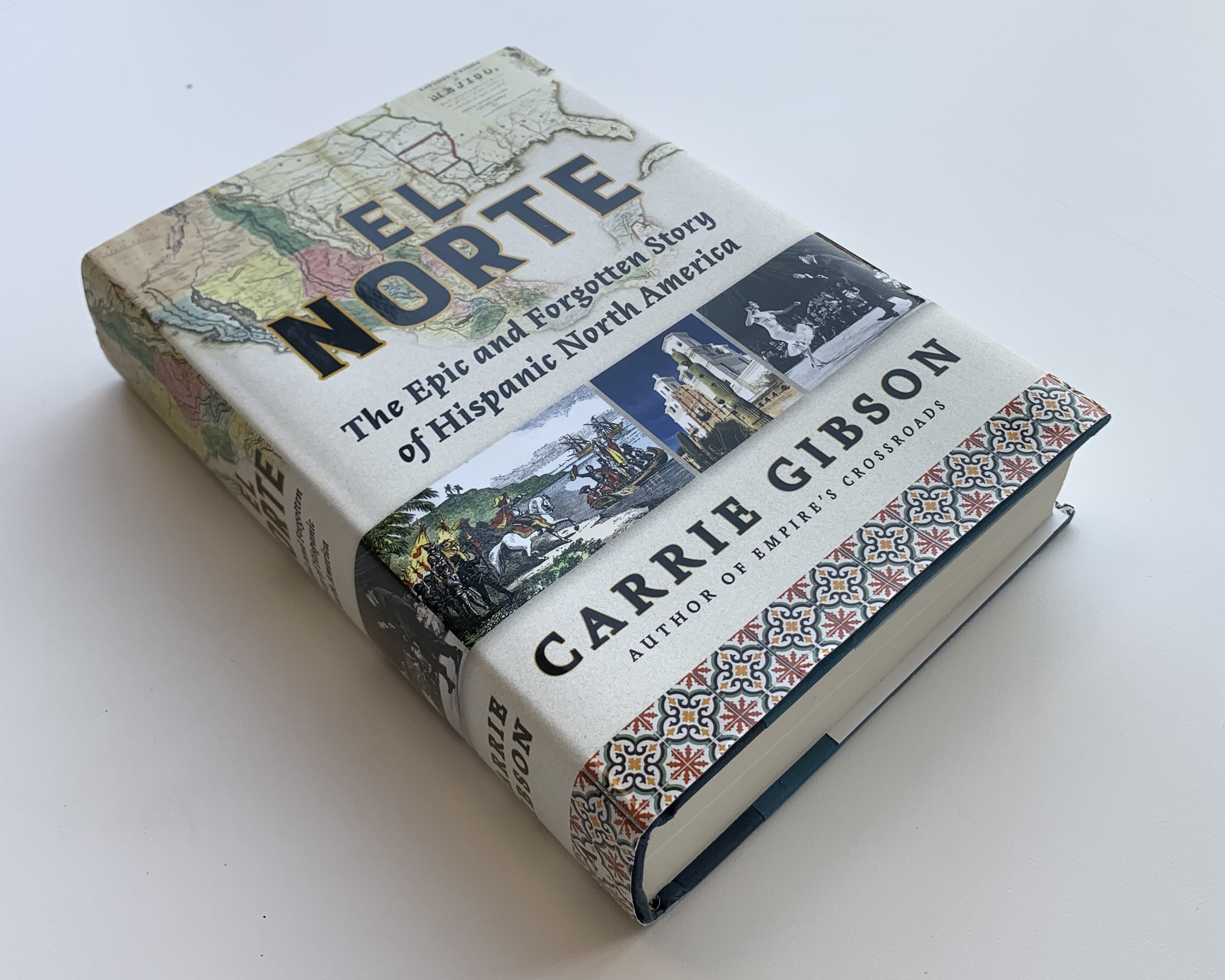Mexican legislators pass a law to halt the immigration of U.S. citizens to Mexico. Come again?
The year was 1830, and Mexicans were concerned about the inflow of migrants from the U.S. Those concerns were not unfounded, and that migration led, in large part, to the increased settlement of a place we now call the Texas. This is just one fragment of history that doesn’t fall neatly into the narrative of the Anglo conquest of North America.
In her new book “El Norte,” author Carrie Gibson recounts a history that has been largely unacknowledged and marginalized: America’s Hispanic past.
Gibson’s interest in the topic started during her high school years when she observed a growing number of Hispanic immigrants arriving in Dalton, Georgia where she grew up. Dalton, known as “the carpet capital of the world,” was attractive to immigrants looking for work, especially after the passage of the North American Free Trade Act, or NAFTA, in the 1990s.
Gibson eventually became a historian of the Caribbean, focusing on the area’s Hispanic islands.
“All of this kind of came together … during the election of 2012, and I was watching a lot of the coverage, and I was just stuck at how people were still talking about immigration, how they were still talking about Mexican people, Hispanic people, the Latino community,” Gibson says. “It kind of felt like nothing had changed from the ’90s.”
She set out to understand the bigger story, she says, and “sort of ended up back at the 15th century.”
She learned, for example, that Spaniards had battled the French to establish colonies in what’s now South Carolina, long before English pilgrims settled in New England.
But Spaniards didn’t gain a lasting foothold in what is now the United States, in the way they did in Mexico and further south. Gibson says Native Americans resisted them.
“When the English start coming over, they have more scale, more settlers and a better degree of success that allows them to build into New England,” Gibson says.
Gibson says the way history has been written plays a role in how we understand the role of Hispanic conquest. Anti-Catholicism is a common theme in U.S. history writing, she says, and so is the portrayal of Spanish conquistadors as vicious and bloodthirsty, when compared with British colonizers.
Written by Shelly Brisbin.















